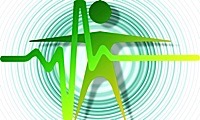
 It's a disturbing notion. With all that I've written about the great benefits of positive human synergy, you would think this thought would never cross my mind.
It's a disturbing notion. With all that I've written about the great benefits of positive human synergy, you would think this thought would never cross my mind.
The whole can be less than the sum of its parts.
In a group or on a team, you expect at least some of the people to inspire each other, to think creative thoughts, to translate them into productive solutions, and to form a community of work teams that make innovative things happen. And yet, time after time, committees, executive teams, boards, and government agencies charged with important responsibilities get mired in the details, are stymied by self interest, or just end up rubber-stamping the status quo.
Why?
When someone comes up with an important innovative mission, they need to attract energized team members to help them plan and execute. But at the earliest stage, the vision needs to get moving and there isn't time to give anyone a 'thumbs down.' You get followers and you hope they'll be OK, whether or not you would have been likely to pick those particular ones under different circumstances. Sad to say, some will just be along for the ride. This happens a lot in large organizations, where the politically astute can readily sniff out personal, as opposed to team, opportunities.
But 'political' people - those who are in it for themselves and not for the achievement of the vision - can and do interrupt and usurp the energy of a team. The same is true of self-absorbed, fearful people. They are not necessarily 'bad' but they are certainly not team-players or positive contributors.
If you've ever been on a team that was populated by a few of these types, you have probably experienced the feeling of the life being sucked out of you.
When this is happening and there is no intervention, it just keeps on going until the entire project vaporizes.
I think this may be why crowdsourcing works. (Read: "We are Smarter than Me.") If you have a 'start up' group that forms very quickly, and is huge, it doesn't matter if there are people who've joined but have nothing worthwhile to contribute. You don't expect that everyone will. You just expect that within the crowd there will be sufficient contribution and team spirit to enable something wonderful to happen.
For the rest of us, working in smaller groups of people and perhaps with more mundane objectives, it is essential that every team should be able to achieve a level of synergy that makes it 'greater than the sum of its parts.'
So what do you do?
Throughout my professional life I have been creating tools and methods for measuring and predicting the quality with which a person will work on a team to achieve a common goal. (Visit: www.thegabrielinstitute.com)
The only thing that makes sense to me is this: evaluate your team - whether by close observation or by tools designed to measure 'teaming' - and if someone isn't contributing value, cut them loose. It isn't cruel. If they really want to contribute, but it's not working on your team, they will find another team. What's really important is that the energy drain will have stopped, human synergy will re-form, and the mission will be back on track.
Dr. Janice Presser is CEO of The Gabriel Institute, which has created Role-Based Assessment: the completely new way to predict how someone will work on a team. She offers readers of Innovation America a 'no cost solution' for a hiring problem. Contact her at This email address is being protected from spambots. You need JavaScript enabled to view it.. For organizations looking for ways to improve performance, TGI can also provide pilot programs in hiring, development, and teambuilding.

